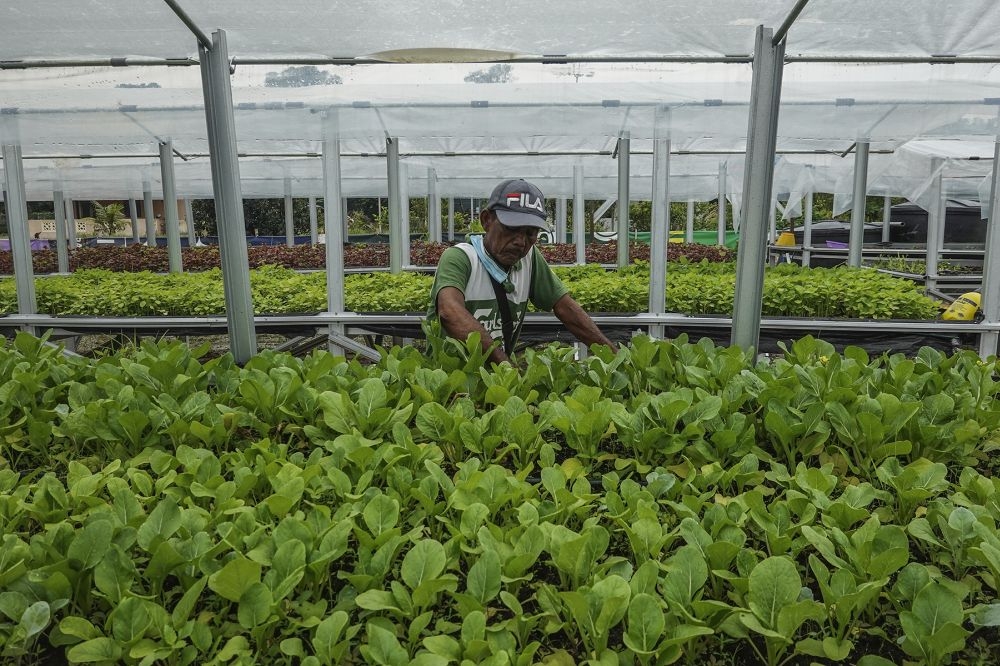NOV 21 — Everyone advocates smart living. We want smart cities. We crave for smart leaders. And smart farming. Why the sudden interest? Smart farming, also known as precision farming, is about using modern technology to enhance farm productivity and improve sustainability. It integrates advanced technologies such as the Internet of Things (IoT), artificial intelligence (AI), robotics, data analytics, and automation to improve the farming processes. The goal is to make farming more efficient, reduce resource wastage, increase crop yields, and negate environmental impact.
A key component of smart farming is Internet of Things (IoT). Together with sensors, real time data are monitored. These include soil moisture, temperature, humidity, and crop health. This data is used to optimize irrigation, fertilization, and pest control based on actual field conditions. Another is the use of drones and remote sensing. Drones equipped with cameras and sensors can map fields, monitor plant growth, and assess crop health. This helps detect issues like diseases or water stress early, allowing farmers to act proactively.
Artificial intelligence (AI) analyses large datasets from IoT sensors to make predictive decisions. For example, AI can predict the best planting or harvesting times, optimal irrigation schedules, and potential pest outbreaks. Automated machinery, such as tractors or harvesters, can plant, irrigate, and harvest crops with minimal human intervention. Robots are increasingly used in tasks such as planting, weeding, and picking fruits and vegetables.

Smart farming reduces the overuse of inputs, minimizing environmental impact. Big data and cloud computing help immensely. Cloud-based platforms collect and store data, allowing farmers to access information in real time and make informed decisions. This data can be shared across platforms to improve collaboration. GPS-guided machinery allows for highly accurate planting, harvesting, and soil management, ensuring consistent spacing and minimizing crop damage. Satellite and aerial images help monitor field conditions over large areas and over time.
There are obvious benefits. Farmers can use water, fertilizers, and pesticides more efficiently. Whilst automation and precision farming reduce labour costs and input wastage, saving money in the long run. By reducing chemical and water use, smart farming promotes more sustainable agricultural practices. Data analytics and AI help farmers predict potential risks like weather changes or pest infestations and take preventive actions.
Smart irrigation systems provide the right amount of water at the right time, minimizing usage. Blockchain technology can be used for traceability, ensuring transparency in the agricultural supply chain from farm to table. To advance the smart farming agenda, a multi-prong approach is essential, combining technology, education, and policy. Ensure rural areas have access to high-speed internet. Invest in climate-controlled environments and space-efficient techniques for year-round cultivation. Provide farmers with training in the use of digital tools. Establish agricultural innovation centres to disseminate the latest research and technology to farmers.
Strong policy support is essential. Give financial incentives to farmers adopting smart farming technologies. Ensure smart farming aligns with broader sustainability policies. Partner with technology companies to develop accessible, affordable solutions tailored to local farming needs. Engage academics to conduct research on local conditions and develop the relevant technologies. Collaborate with government bodies and NGOs.
Develop centralized platforms where farmers can share data, allowing for insights into region-specific agricultural trends. Utilize renewable energy sources, like solar or biogas, to power farming equipment and reduce reliance on fossil fuels. Use data-driven techniques to ensure sustainable soil management and protect local biodiversity. Offer crop insurance that uses smart farming data to better assess risks and damages. Enable farmers to access markets online, cutting out the middle-men. Link small farmers with larger supply chains, ensuring consistency and quality in the produce. Run demonstration farms to showcase smart farming. Use measurable key performance indicators (KPIs) to track progress in productivity, sustainability, and profitability.
By addressing these key areas, we can create an ecosystem that nurtures smart farming, improves agricultural productivity, and promotes sustainable practices for future food security. The Tropical Science Conference to be held on 16-17 October 2024 in Kuching will deliberate more on the subject. Smart farming is sorely needed as the world struggles to stop global warming and create more justice for society.
* Professor Datuk Dr Ahmad Ibrahim is an Associate Fellow at the Ungku Aziz Centre for Development Studies (UAC), Universiti Malaya, and may be reached at [email protected]
** This is the personal opinion of the writer or publication and does not necessarily represent the views of Malay Mail.





















